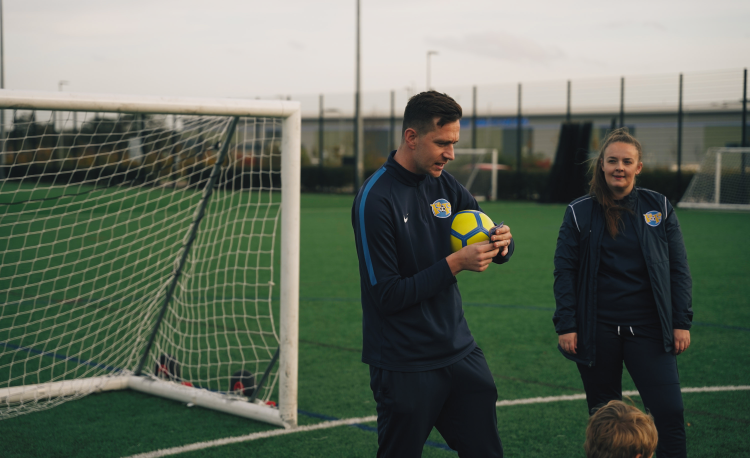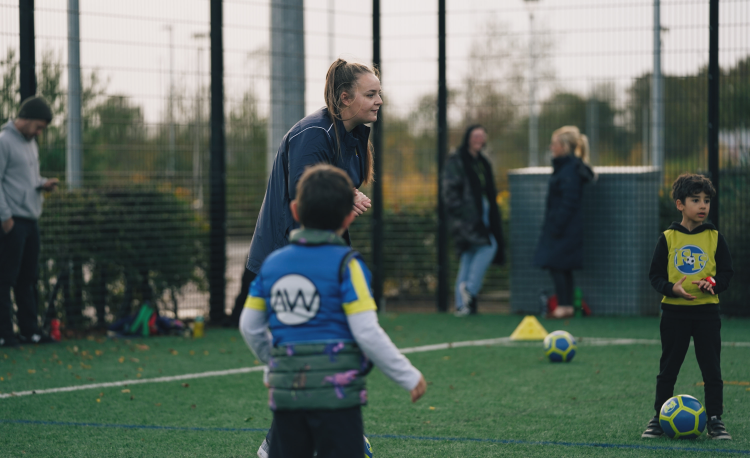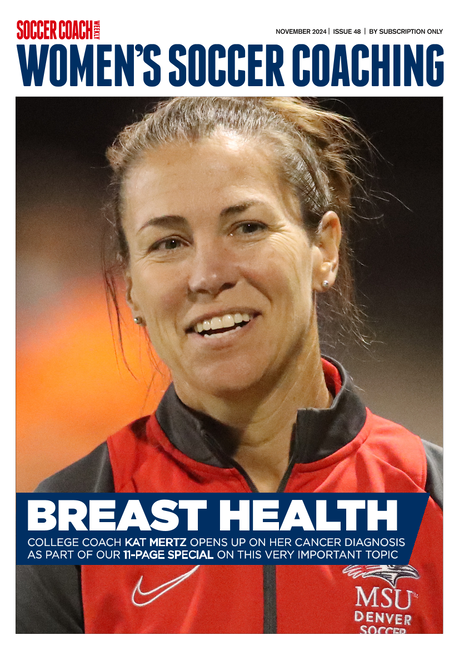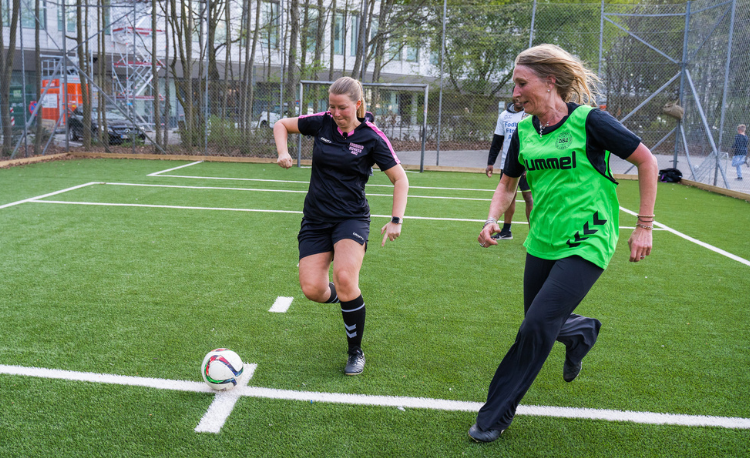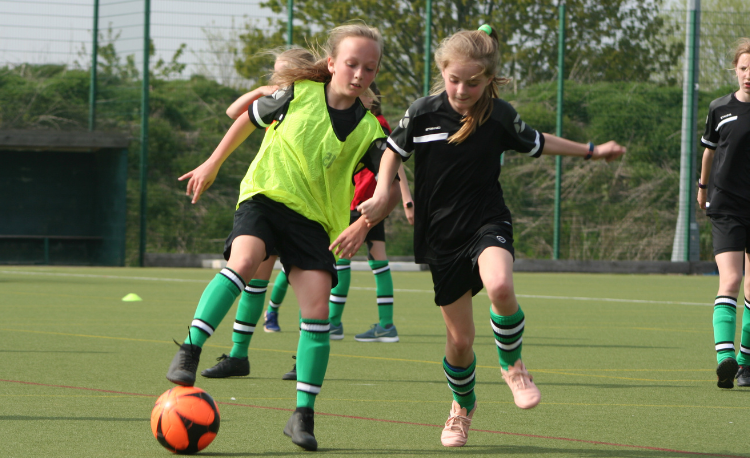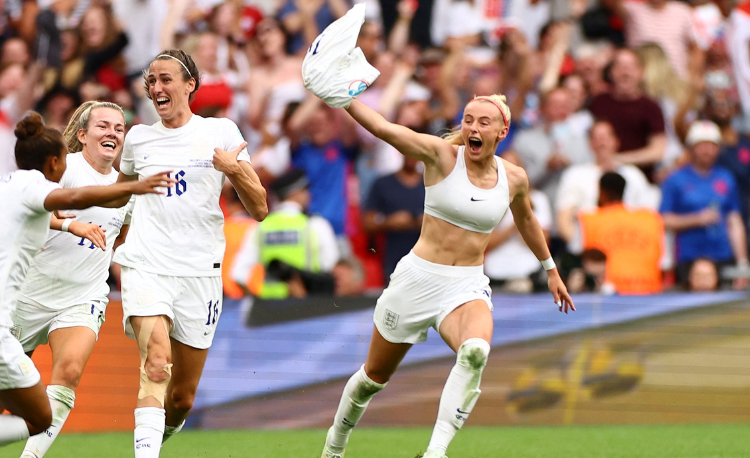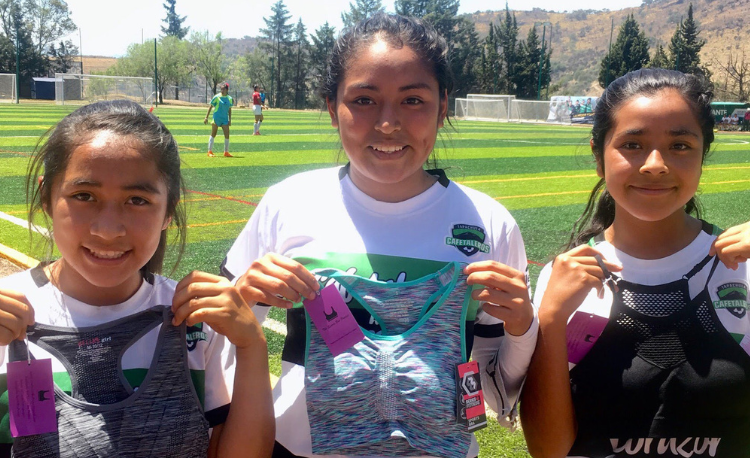You are viewing
1 of your 3 free articles
The benefit of observing other coaches
Observing others and learning from them enabled Eloise Hope to mould her own coaching philosophy. Here, she explains the detail and motivation behind it.
Finding my love for football at the age of 12 - thanks to a PE teacher who, when needing a goalkeeper, turned to me as one of the tallest girls in my year - has turned out to be the best life decision I have ever made.
I chose to study either PE or sports-related subjects as much as I could throughout school and college, which led to studying the women’s game at university. I finished my education with a Masters degree, researching the Women’s Super League.
Since giving up playing at 27, a few years ago, I was told by others that I’d be a good coach. So I thought: "Why not give it a go?".
I started my coaching journey at Cambridge United, in tier four of the English women’s soccer pyramid, and am now lucky enough to find myself in a full-time coaching position with the Football Fun Factory.
Coaching seemed the natural route to stay involved in the game I love and to try to help develop the female game as much as I can.
As a player, I encountered the good, the bad and the ugly when it came to coaches.
Some understood women’s football and how it was different to the men’s game; they actually cared about trying to make a positive impact on those they were coaching.
"Seeing daily photos and videos of other coaches has done me the world of good..."
However, some were only involved in the women’s game because they saw it as a stepping stone to men’s football.
I have also seen coaches single-handedly ruin an entire team due to their own ego and their unwillingness to compromise or learn better behaviours.
Learning from the coaches I had throughout my playing career really helped me to understand my own coaching philosophy and how I wanted to be perceived as a coach.
Being able to learn from both the positive and negative aspects of people’s individual coaching styles has helped me to mould my own style and be able to coach in a way that makes everyone feel included.
I am lucky enough to work with a great team of coaching staff, as well as being able to bounce ideas off an entire country of coaches within my current role.
Seeing daily photos and videos from other coaches’ sessions, and how they present themselves, has done me the world of good. I am always trying to improve my sessions and I often see something new that I can implement within my sessions.
Some may not work but being influenced by others can really help to up my game.
I am still fairly new to coaching and I am learning from others all the time. It is important for me to observe both the good and the bad in other coaches and to really focus on what I can learn from each individual.
I take every opportunity I can to talk to those in a similar position, as I believe collaborating with other coaches and taking time to learn from them can really help take my coaching to the next level and make me the understanding coach I always wanted to have when I was a player.
When observing, I like to take notes on how coaches might challenge the more advanced players in a group by giving them their own tasks throughout the practices or games.
This could be a simple thing such as using their weaker foot when dribbling or shooting, or ensuring they make a certain number of passes so all team-mates are included.
I also enjoy observing how coaches tailor their sessions to include the goalkeepers.
It is all too common for goalkeepers to turn up to training and be treated like an outfield player.
I am always conscious of getting the goalkeeper as much specific training as possible. If that is not possible, it is important to adjust a practice so they can be included.
Each coach I have observed who actually includes the goalkeeper does this in different ways and it is always good to get little bits of knowledge from each one to add into my own sessions.
"It is always beneficial to notice the good and the bad in others’ coaching styles..."
As important as it is to observe and implement the good in coaches, it is also important to observe the bad, and what not to do or how not to treat players.
I have previously had coaches who insisted that female players should be treated the same as male ones. They don’t see what the difference is when it comes to football.
This taught me that each player should be treated as an individual, and that different players respond to praise and criticism differently. Getting to know your players and the way they work can make a world of difference.
Learning from others has been vitally important to the stage I’m at with my career.
Watching how other coaches interact with players, and how they keep them focused as well as having fun throughout training sessions, are qualities I always try to implement in my own coaching.
It absolutely pays off to work with and learn from other coaches. But it is always beneficial to notice the good and the bad in their coaching styles.
It is also important to evaluate your own coaching on a regular basis to see what you did well and what could be improved.
Ensure each session, and your own attitude, is tailored towards those you are coaching and really take time to get to know players as the individuals that they are.
This can help them feel like they really are a part of a special team with a great coach guiding them along the way.
Related Files
Newsletter Sign Up
Newsletter Sign Up
Discover the simple way to become a more effective, more successful soccer coach
In a recent survey 89% of subscribers said Women's Soccer Coaching makes them more confident, 91% said Women's Soccer Coaching makes them a more effective coach and 93% said Women's Soccer Coaching makes them more inspired.
*includes 3 coaching manuals
Get Inspired
All the latest techniques and approaches
Women's Soccer Coaching offers proven and easy to use soccer drills, coaching sessions, practice plans, small-sided games, warm-ups, training tips and advice.
We've been at the cutting edge of soccer coaching since we launched Soccer Coach Weekly in 2007, creating resources for the grassroots youth coach, following best practice from around the world and insights from the professional game.
